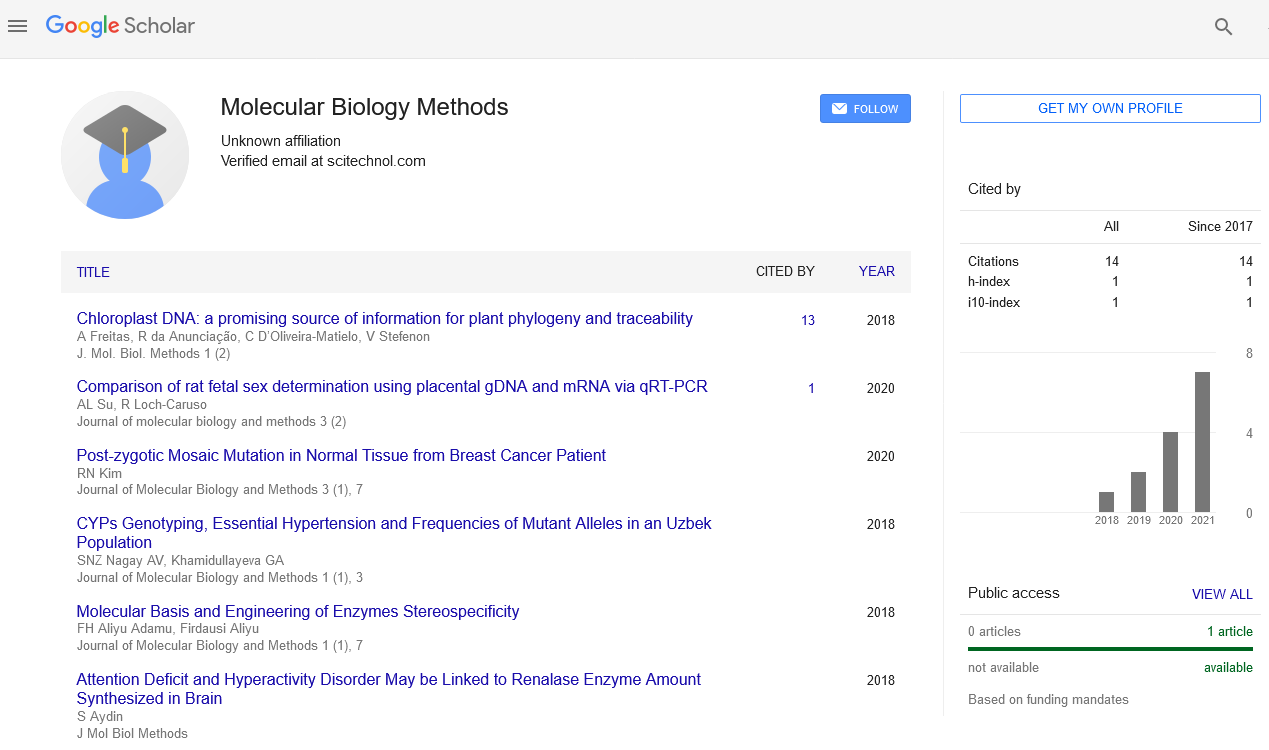Perspective, J Mol Biol Methods Vol: 6 Issue: 4
Tumor Biology: Its Challenges and Future Directions
Serena Trapella*
1Department of Veterinary Medical Sciences, University of Bologna, Bologna, Italy
*Corresponding Author: Serena Trapella,
Department of Veterinary Medical
Sciences, University of Bologna, Bologna, Italy
E-mail: trapellas_erena@edu.it
Received date: 27 November, 2023, Manuscript No. JMBM-24-124368;
Editor assigned date: 30 November, 2023, PreQC No. JMBM-24-124368 (PQ);
Reviewed date: 14 December, 2023, QC No. JMBM-24-124368;
Revised date: 21 December, 2023, Manuscript No. JMBM-24-124368 (R);
Published date: 28 December, 2023 DOI: 10.5958/jmbm.1000156
Citation: Trapella S (2023) Tumor Biology: Its Challenges and Future Directions. J Mol Biol Methods 6:4.
Description
Tumor biology is an intricate field encompassing the study of tumors, their development, behavior, and interactions within the body. These abnormal growths, also known as neoplasms, arise from a disruption in the normal regulatory mechanisms that control cell growth and proliferation. Understanding tumor biology is important for advancements in cancer diagnosis, treatment, and prevention strategies. Tumors can develop due to various factors such as genetic mutations, environmental influences, or a combination of both. They can be broadly categorized into two types: benign and malignant. Benign tumors are typically localized, slow-growing, and non-invasive. In contrast, malignant tumors are aggressive, invade surrounding tissues, and can metastasize to distant parts of the body.
The initiation and progression of tumors involve alterations in the genetic material of cells. Mutations in oncogenes (which promote cell growth) or tumor suppressor genes (which inhibit cell growth) play a pivotal role. Additionally, dysregulation of signaling pathways involved in cell cycle control, apoptosis, and DNA repair contributes to tumor development. Tumors are not solely composed of cancer cells but exist within a complex microenvironment comprising blood vessels, immune cells, fibroblasts, and extracellular matrix components. Crosstalk between tumor cells and this microenvironment influences tumor growth, invasion, and response to therapies
Metastasis, the spread of cancer cells from the primary site to distant locations, is a hallmark of malignant tumors. It involves a series of steps: invasion into nearby tissues, intravasation into blood or lymphatic vessels, survival in circulation, extravasation at distant sites, and colonization to form secondary tumors. Advances in imaging technologies such as MRI, CT scans, PET scans, and molecular imaging have revolutionized tumor detection and characterization. Biopsy and molecular profiling techniques, including genomics, proteomics, and metabolomics, aid in understanding the molecular signatures of tumors and guide personalized treatment approaches.
Treatment modalities for tumors include surgery, chemotherapy, radiation therapy, immunotherapy, targeted therapy, and recently developed approaches like precision medicine and gene therapy. These treatments aim to selectively target cancer cells while minimizing damage to healthy tissues. Despite significant progress, challenges persist in the field of tumor biology. Drug resistance, tumor heterogeneity, and the ability of tumors to evade the immune system pose hurdles in effective treatment. Ongoing research focuses on developing novel therapeutic strategies, enhancing early detection methods, and understanding the role of the tumor microenvironment in tumor progression.
The study of tumor biology is multidisciplinary, involving genetics, cell biology, immunology, and clinical medicine. Collaborative efforts among researchers, clinicians, and pharmaceutical industries are essential for advancing our knowledge of tumor biology and translating discoveries into improved diagnostics and treatments for cancer patients. By unraveling the complexities of tumor biology, scientists and healthcare professionals strive towards more precise, effective, and personalized approaches in combating cancer, ultimately aiming for better outcomes and improved quality of life for affected individuals.
 Spanish
Spanish  Chinese
Chinese  Russian
Russian  German
German  French
French  Japanese
Japanese  Portuguese
Portuguese  Hindi
Hindi 